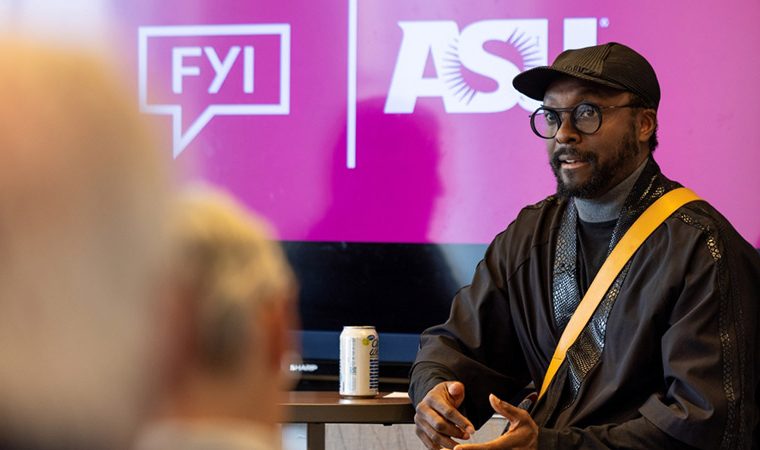
will.i.am Introduces His Female Robot – Talks Future, Diversity In Tech & More.
On the Standard’s Tech and Science Daily podcast, producer and host, Rachelle Abbott, sat down with will.i.am to talk about FYI.AI, a productivity tool for creatives which includes newly developed AI voice assistants. One of them, called Fyilicia (pronounced: Felicia), will appear as a mentor on The Voice UK this year, where will.i.am has been a judge since 2012. This is a first for an AI robot: the episode will air on October 12.
“I think we got something really special with [Fyilicia],” will.i.am says. “She represents inner-city Watts [a Hispanic neighbourhood in southern Los Angeles near where will.i.am grew up as part of the African-American minority]”. Fyilicia was modelled after a member of that community, called Alicia, and created with the express goal of diversifying AI assistants in a market where the standard voice speaks either in received pronunciation or the American equivalent. In other words: a market of white, middle-class voices.
On asking how Fyilicia works. “I operate like a digital dynamo with all that AI tech packed in,” she replies. If AI is going to be global, we need global representation, will.i.am believes. Fyilicia is not like other robots: she is, by her own description, “street smart” and an analyst of “vibes”. She “pull[s] info” and “deliver[s] them insights straight up”.
The Black Eyed Peas’ frontman says When the Peas came to Boston on tour, he would find the time to attend a class by Patrick Winston, professor of AI at MIT. “That’s what [first] got me excited about AI back in 2006,” he says.
will.i.am has always been radically optimistic about the future, investing in companies such as Anthropic and OpenAI. “What we’re going through right now is akin to the Industrial Revolution, he says. The fact that some jobs will disappear in the next five years is no different to what happened back when “horse and buggy folks” were told, “you ain’t making horse and buggies no more!”
Being a journalist in the era of ChatGPT is a frightening prospect. “It’s unfortunate,” will.i.am says, with what sounds like little remorse. “The folks that have been living in the lap of comfort, the lap of luxury, this whole time, are about to be hit with a ‘what was that?’ wave — because the white-collar and blue-collar jobs [as we know them] are gonna be rendered obsolete.” That is also, he’d like to stress, “awesome”.
“New jobs and new industries are just around the corner,” he gushes. One of the most exciting things about the AI revolution is that it will redraw the world map. New jobs “are gonna come from places like Ghana, Nigeria, Liberia, Tunisia, from freakin’ Uruguay, Paraguay, Nicaragua”, he enthuses.
When asked if he has a message for the next US president, whomever they may be, will.i.am says: “If I think about the people that are [currently] training [AI] models and building data sets, it’s not people that look like me — or my sister or my mom or my cousins.”
To avoid algorithmic biases, “we gotta have folks from all different walks of life writing the algorithms and training the data”. The voices generated by FYI.AI take after “Zimbabwe, Uganda, the whole [African] continent — all the dialects and colloquialisms, from Atlanta, the South Bronx, Brixton”, will.i.am says. Fyilicia tells us “representation ain’t just some fancy word we throw around” and “it’s the heartbeat of why I exist”.
It’s time to wrap up. “I’m out,” Fyilicia says. “Go ahead and say, ‘Bye, Fyilicia’.” 3008 never felt so close to home.
Listen to the podcast with will.i.am (Standard’s Tech and Science Daily) below:




